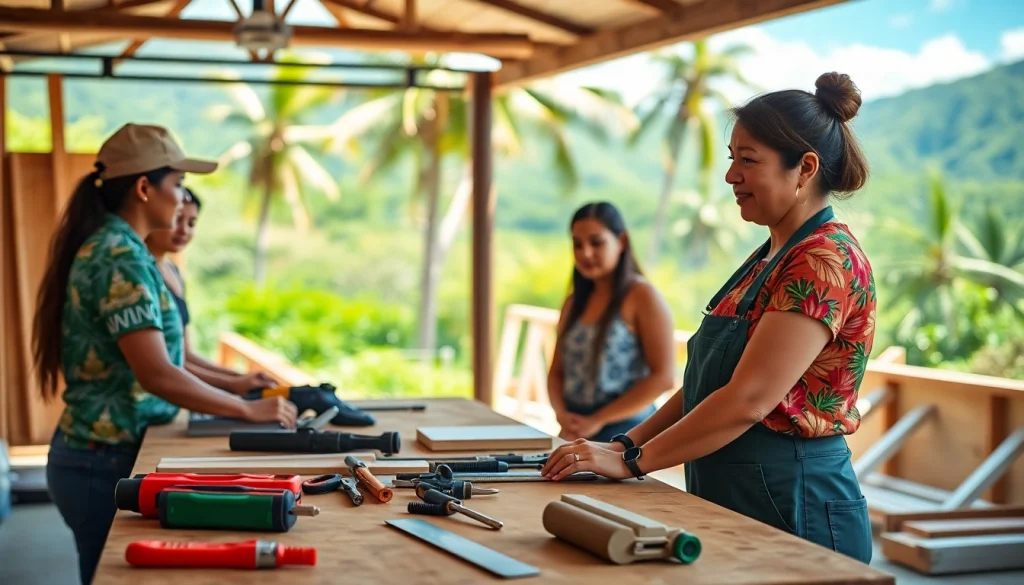Understanding Trade Schools in Hawaii
Trade schools, often referred to as vocational or technical schools, are institutions designed to equip students with specific skills for a career in various trades. Hawaii, with its unique economy and industries, has seen a rising demand for skilled workers across multiple fields. As such, attending trade schools in Hawaii can be a lucrative pathway for those seeking hands-on careers that require specialized training.
What are Trade Schools?
Trade schools focus on teaching practical skills and knowledge relevant to a specific occupation. Unlike traditional college programs that may emphasize theoretical knowledge, trade schools offer applied learning, internships, and hands-on training. Programs at these institutions are generally shorter and more focused, allowing students to enter the workforce quickly.
Benefits of Attending Trade Schools in Hawaii
Choosing a trade school in Hawaii comes with multiple benefits:
- Shorter Programs: Trade school programs typically range from a few months to two years, enabling students to enter their chosen fields much faster compared to traditional four-year degree programs.
- Cost-Effective: The cost of trade school tuition is significantly lower than that of traditional college, with many programs offering financial aid options.
- High Demand for Skilled Labor: Many industries in Hawaii, such as construction, healthcare, and hospitality, are always in need of skilled workers, which translates to job security.
- Hands-On Learning: Trade schools emphasize practical experience through labs, workshops, and internships, giving students real-world skills.
Understanding the Programs Offered
Trade schools in Hawaii host a wide variety of programs designed to meet local workforce needs. Some common areas of study include:
- Construction and Trades
- Healthcare and Nursing
- Culinary Arts
- Information Technology
- Aviation and Transportation
Top Trade Schools in Hawaii
Hawaii hosts numerous trade schools that provide comprehensive vocational training. Here are some of the most notable institutions:
Honolulu Community College: A Leader in Trade Education
Honolulu Community College stands out for its robust vocational programs. It offers degrees and certificates in fields such as welding, carpentry, and automotive technology. The college collaborates with local industries to ensure that its curricula are relevant and up-to-date, making graduates more competitive in the job market.
Kapiolani Community College: Diverse Program Options
Kapiolani Community College (KCC) is renowned for its culinary arts program, which is highly regarded nationally. Aside from culinary training, KCC also offers programs in health sciences, hospitality, and technology, catering to a broad spectrum of interests and career paths.
Leeward Community College: Hands-On Training for Real-World Skills
Leeward Community College is known for its emphasis on practical experience. Programs such as carpentry, plumbing, and electrical work involve extensive hands-on training, ensuring students are well-prepared for their respective careers upon graduation.
Programs and Specializations Available
Trade schools in Hawaii offer diverse programs and specializations to cater to the evolving job market. A few notable areas include:
Construction and Trades Programs
With Hawaii’s booming real estate market, careers in construction are thriving. Programs covering carpentry, masonry, and landscaping not only provide the necessary skills but also focus on safety and compliance with local regulations.
HVAC and Electrical Programs
Training in HVAC (Heating, Ventilation, and Air Conditioning) and electrical systems is crucial, given Hawaii’s climate and increasing reliance on technology. These programs teach students the fundamentals of installation, maintenance, and repair, equipped with the latest tools and technology.
Health and Culinary Arts Programs
The healthcare and culinary fields are indispensable components of Hawaii’s economy. Trade schools that offer programs in nursing assistance, culinary skills, and food service management produce graduates who are ready to meet the local demand for healthcare and hospitality.
Financial Aid and Support for Students
Affording trade school education can be challenging, but there are various financial support options available to students in Hawaii:
Understanding Tuition Costs and Funding Options
Tuition costs for trade schools vary significantly based on the program and institution. Public schools usually offer lower tuition rates compared to private institutions. Furthermore, many schools have partnerships with local businesses that can sometimes provide scholarships or job placement post-graduation.
Scholarships and Grants for Trade Schools in Hawaii
Numerous scholarships and grants exist specifically for students attending trade schools. Entities like the Hawaii Community Foundation and local businesses often sponsor candidates pursuing careers in high-demand industries. Students should research these opportunities and apply early, as funds may be limited.
Job Placement Services and Career Counseling
Many trade schools provide robust career services to help graduates transition into the workforce. This includes resume workshops, interview preparation, and connections to local employers seeking skilled labor. Such support is invaluable in a job market where networking can significantly enhance employment prospects.
Future Outlook and Career Opportunities
The future looks promising for graduates of trade schools in Hawaii. With ongoing demand for skilled labor in various sectors, trade school alumni are well-positioned in the job market.
Job Market Trends for Graduates of Trade Schools
Reports indicate a steady rise in job openings in construction, healthcare, and technology sectors. Growth projections for skilled trades reveal that as baby boomers retire, there will be a significant demand for new workers. This trend underscores the importance of training programs that are adaptive to labor market conditions.
Success Stories from Trade School Alumni
Many individuals have transitioned successfully into the workforce after attending trade school. Alumni often share experiences of quick job placements, lucrative career paths, and job satisfaction due to the experiential learning they received.
How to Transition from Education to Employment
Graduates should actively seek internships during their training, connect with industry professionals, and take advantage of career services provided by their schools. Networking events, job fairs, and professional organizations can also offer vital connections and insights into job opportunities.
You may also like
-
Boost Your Career with Trade School Tennessee: Unlocking Pathways to Success
-
Essential Guide to Trade Schools in Hawaii: Programs and Opportunities
-
Essential Skills Every New York Construction Manager Should Master
-
Key Roles and Responsibilities of a New York City Construction Manager
-
Understanding PMP Experience Requirements for Project Management Certification
